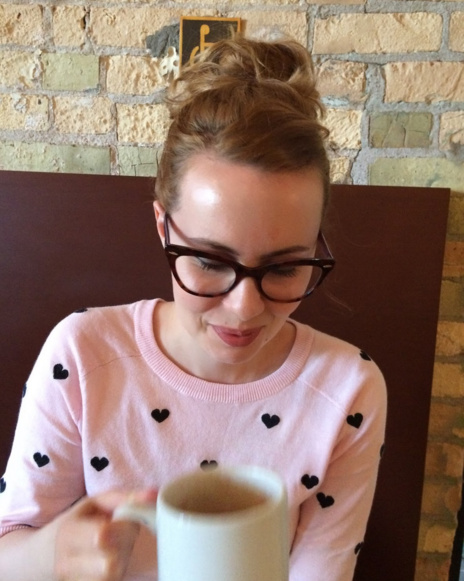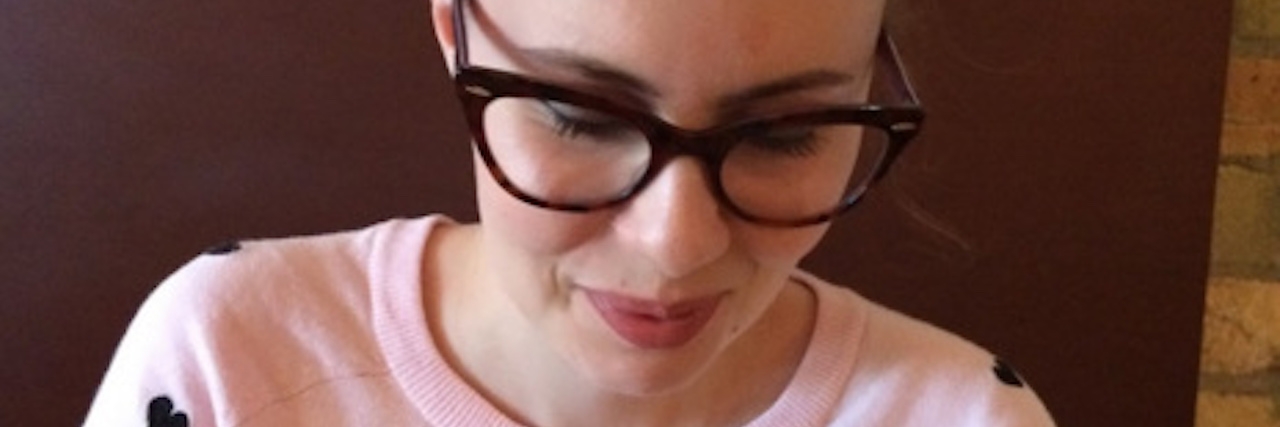Women with pulmonary hypertension (PH) are advised against pregnancy because of the associated risks. It’s difficult to articulate the loss one feels over something they never had. I never had a child (nor did I lose one), but losing the ability to get pregnant is painful in a way where you grieve and mourn. Although no one has physically died, it feels as if a death has happened.
Suddenly the dreams of painting with my son or daughter, opening gifts on Christmas morning and reading them a story before bed (like my parents had done for me) are all gone. Throughout this experience, my friends and family have assured me that although I am sick, I am still the same person. The truth is, you cannot go through something like this and stay the same person. It changes you.
Being a product of Generation Y, I have witnessed the birth and growth of social media. I have witnessed an age with oversharing — yet there is still a stigma around sharing anything unpleasant like loss. I shared on my blog that I haven’t been ready to meet any of my friends’ and families’ babies yet. Other young women with PH reached out to me to say they knew how I felt and thanked me for sharing something they could relate to. I saw other people share my post with their friends and family to help explain what they have gone through.
Pregnancy for women with PH increases the risk of death for both the mother and child. Almost every organ is affected by pregnancy. For example, the most notable change is the increase in blood volume within the cardiovascular system, which is something that could be potentially fatal for someone with PH.
Not being able to get pregnant because of a disease is weird and complex. It is frustrating because many of us with PH can be fertile. This means if I were to get pregnant, it would not be a happy miracle (like most circumstances where someone cannot get pregnant due to fertility issues.) It could turn into a life or death situation. As a feminist, I also realize how heavily society places being a mother on women. Part of me fears that I will never be a good enough partner because I cannot provide a biological family along with all the other worries associated with PH.
At age 25, I was advised that I had PH, and that pregnancy would carry a 30 to 56 percent fatality rate for someone like me. It was a few days before Christmas. I had also just found out that I had stage 3-4 PH, and that I had maybe five to 10 years to live. At this point, I was given too many losses all at once. While I knew I wanted children, I also knew I could not deal with that emotional blow at that time. My main priority had to be getting better, so I tried my best to focus my attention on that. I stored the emotional loss somewhere buried in my mind to deal with once I was better equipped to do so.
Several months had passed after diagnosis. The first winter after diagnosis felt long and the days melted together. When the snow had melted, I was sent to see a gynecologist at the recommendation of my specialist. It seemed like every doctor was worried about me getting pregnant — as if I could get pregnant as easily as one catches a cold. At this point I was so sick I was using motorized scooters in the mall, relied on the help of my mother to change out of my sweatpants into my pajamas, and I couldn’t shower. Getting pregnant was just about as likely as me passing grade 10 math. (Spoiler alert: I didn’t pass grade 10 math.) I called the gynecologist’s office in advance to warn them that it was simply too soon to talk about my situation. However, I believed that I was showing signs of a hormone problem and would like to discuss that with then. I was told this was fine, and I went for my appointment.
I went to the appointment with my father. The building did not have any accessible parking, so we had to park half a block away from the building. It was at this point that I knew the appointment was not going to go as planned. The office was painted in soft colors — colors that had faded over time in the dated office. To the right was a Fisher-Price child-sized plastic house covered in sticky finger prints. Behind the activity center was a collage of all the babies delivered by the doctor’s from the office I was in. The collage expanded across the wall, engulfing the entire office. I watched pregnant women come in and out of the office. I realized this was an office most women went to for something happy and joyous. It was not set up or designed for someone in my position. Instead it was a painful reminder of all the things I cannot have. I slumped into a chair, trying to hold back tears. I grabbed a pamphlet to distract myself. The pamphlet was about saving the stem cells from umbilical cords to help with various diseases like cancer. At this point I couldn’t hold back my tears. I couldn’t have a baby or stem cell therapy (which I feel could possibly help some forms of PH, but what do I know? I only went to school for Fine Arts.).
Eventually I was called back to see a nurse for preliminary testing before I saw the doctor. The nurse asked how I was dealing with my diagnosis. That was a question I had been asked a lot in the months prior. It was a question I wished people didn’t ask because there was no good way to answer. It turned out the doctor I was supposed to see had a brain aneurysm and was off to recover. In her place was a doctor not much older than myself. My previous phone call advising that it was too soon to discuss my current situation was out the window. She showed me different diagrams and pamphlets to ensure pregnancy never happened. I broke down and really started crying. I was ugly crying. She handed me a box of tissues and called me “sweetie.” It was the first time it felt like a doctor a could slightly understand what I was going through. Nearly every woman could imagine what it would be like to find out they could not get pregnant.
However, she still had a job to do. I turned down all contraception methods that contained hormones. I didn’t feel comfortable taking any more medication, especially something that contained hormones. I asked about having tubal ligation done, but she recommended that I stay awake for the surgery because anesthesia is usually avoided for people with PH. I left doctor’s office that day without anything but a bigger emotional wound. Again, I told myself to focus on getting better and worry about this later. I had to prioritize my loses and gain back whatever pieces I could.

Now at 27, I imagined myself married and working towards having children in the next year or two. In reality, I live at home with my parents (if I call them my roommates, it doesn’t sound as bad, right?), left my job and alternate between sweatpants (a.k.a. daytime pajamas) and actual pajamas to sleep in. My years at university did not prepare me for this, but nothing really could have.
Since diagnosis I have heard conflicting information on whether I (and other women with PH) could safely get pregnant or not. I asked one doctor if I could take a certain medication, and he said no because it causes infertility. Did you take that all in? What he said was both cruel and ironic. I asked him why he would even try to use that as a reason for me not to take the medication. His answer was that it is possible that women with PH could get pregnant in the future. I was furious. When I went to not one, but two consultations about tubal ligation (which is permanent), I was never talked out of the procedure. I called in sick to work that day.
I realize getting pregnant isn’t the only way to have children. There is adoption and surrogacy. I am totally OK with adoption. In fact, I have always wanted to adopt and worked with adoptive kids at a childcare center I worked at. As someone who is still fairly newly diagnosed, I still have a lot of fears and concerns about having children. It pains me to think I would not get to be the mother I want to be or that I may not get to be here for all of the milestones. I wouldn’t want anyone to resent me if I could not be the mother I dream of or couldn’t be there to see their first day of school or their wedding. Thinking about it now puts a pit in my stomach. For me, the greatest loss isn’t that I can’t have biological children. The greatest loss is that I feel like I can’t or shouldn’t have a family. As if I can’t invest in my future. Maybe these (reasonable) fears are something that will fade overtime, but for now I feel like there is still a lot of uncertainty surrounding my health and future.
This post isn’t to say if you have PH that you cannot have a family. There have been several women who have shared their stories about adopting, and they have wonderful families. I have also spoken to a few ladies with PH who have gotten pregnant and have given birth after diagnosis. There are more and more successful stories for women with PH who have given birth. I just felt it was important to share my voice and experience about this difficult topic because it is fairly taboo to talk about this publicly.
Follow this journey on The Phight or Flight Project.

